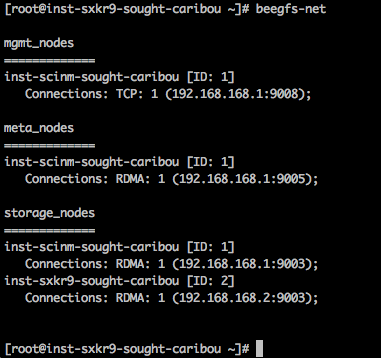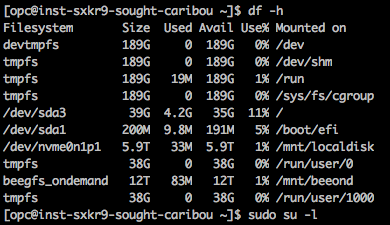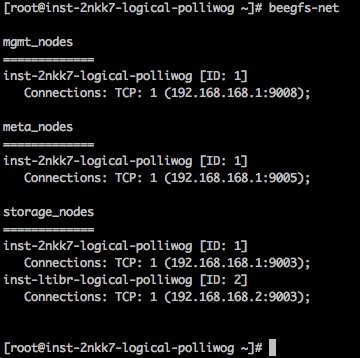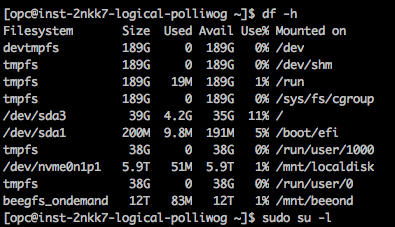Deploy BeeGFS BeeOND (BeeGFS ON Demand) on Oracle Cloud Infrastructure HPC 100Gbps RDMA Clustered Network. The template will do the following:
- Provision a private clustered network using HPC baremeta nodes and 100 Gbps RDMA. Use this template to deploy BeeGFS BeeOND on HPC nodes with clustered networking.
- Create a BeeGFS BeeOND parallel filesystem using all the nodes in the cluster by leveraging the local NVMe SSD on each HPC node to create a single filesystem namespace.
- By default, all nodes will have a BeeGFS BeeOND Storage service & BeeOND client service running. The first node, will also run Management and Metadata service, in addition to storage and client service. You can override the default behavior using Terraform variables, see below Customize-the-template section.
- By default, the filesystem is designed to use 100Gbps RDMA for filesystem traffic along with your HPC application traffic. If we want to use 100Gbps RDMA only for your compute application traffic, then you can configure BeeOND to use 25Gbps network on the HPC nodes.
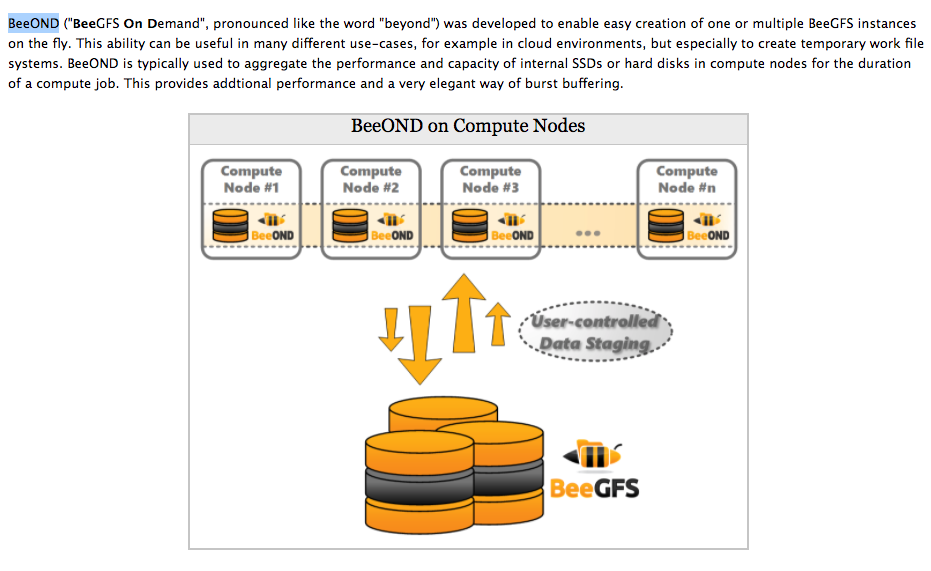 *Quoted from https://www.beegfs.io/wiki/BeeOND#whatis
*Quoted from https://www.beegfs.io/wiki/BeeOND#whatis
The filesystem is designed to use 100Gbps RDMA for filesystem traffic along with your HPC application traffic.
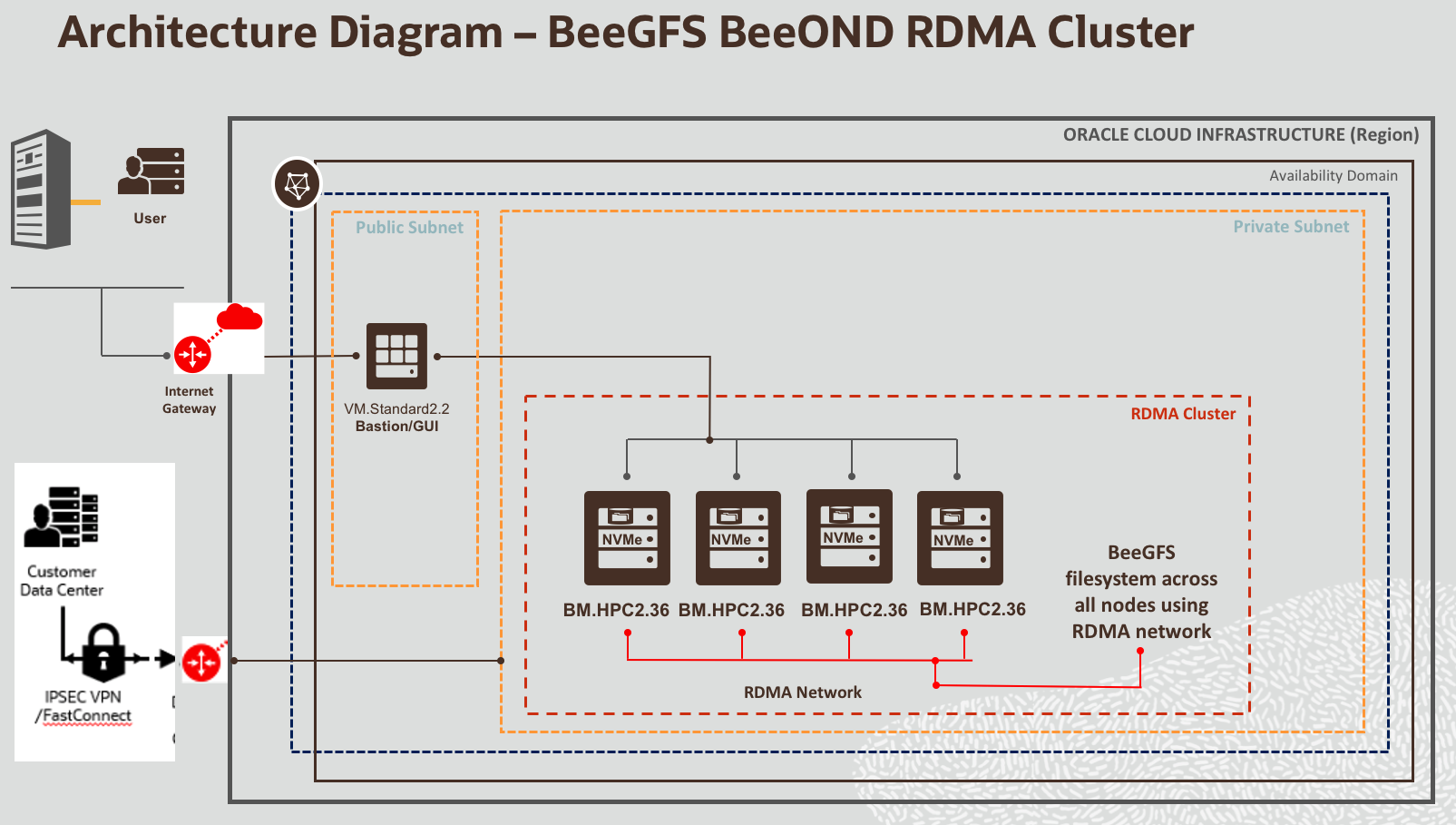
The filesystem is designed to use 25Gbps TCP network for filesystem traffic, while the 100Gbps RDMA is used for HPC application traffic. Set use_beegfs_over_rdma to false in terraform.tfvars or variables.tf file.
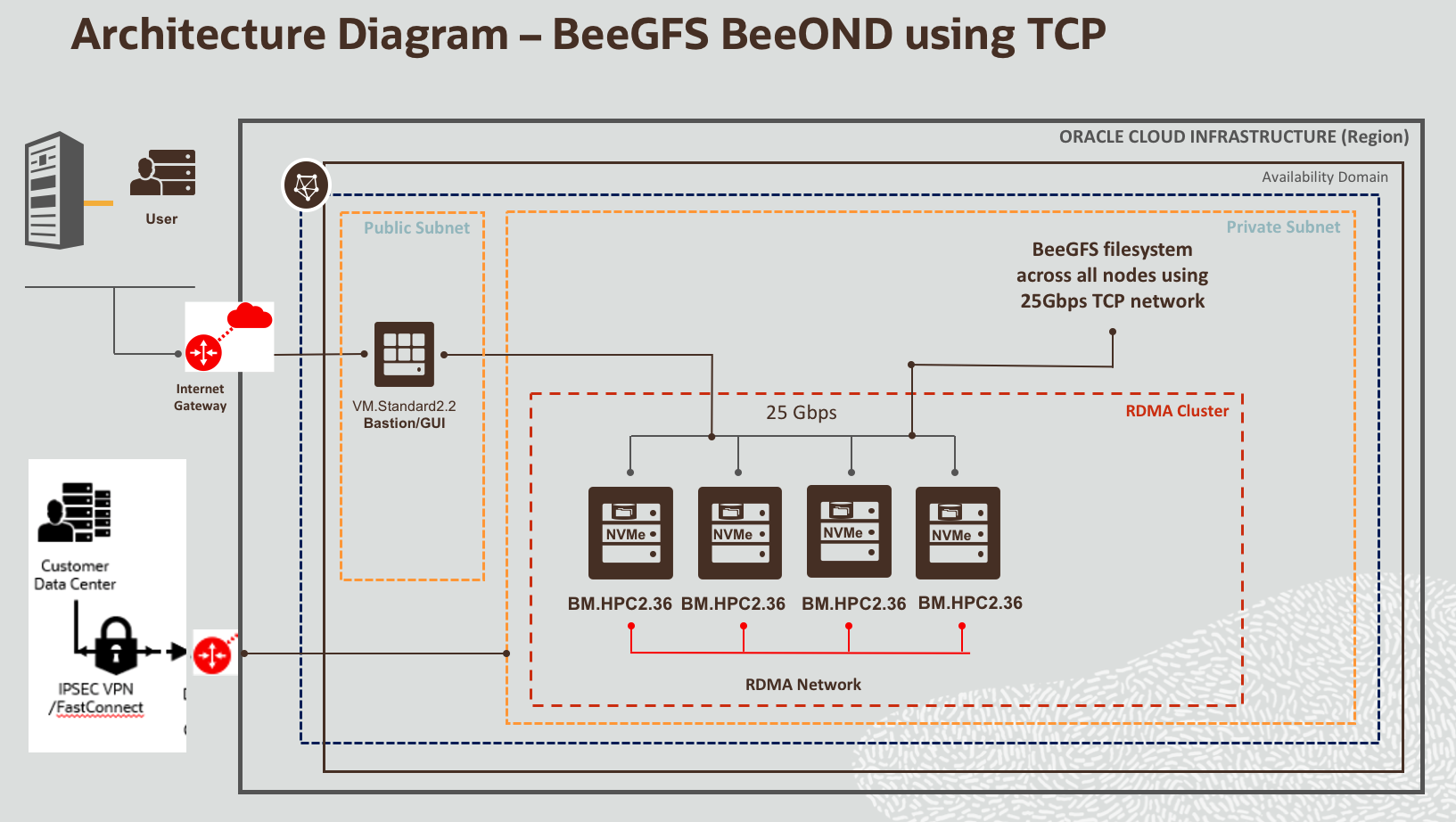
First off you'll need to do some pre deploy setup. That's all detailed here.
Now, you'll want a local copy of this repo. You can make that with the commands:
git clone https://github.com/oracle-quickstart/oci-beegfs-beeond-rdma.git
cd oci-beegfs-beeond-rdma/
ls
Create a terraform.tfvars file and set values as per your needs. We recommend to use terraform.tfvars to override values in variables.tf file. Update values based on your AD, # of nodes in a cluster, etc.
- By default, use_beegfs_over_rdma is set to true in variables.tf, so RDMA network will be used for BeeOND filesystem traffic.
- Set use_marketplace_image=true in your terraform.tfvars file as shown below, To use OCI HPC Cluster Network functionality, you need to use a custom marketplace image created by OCI HPC team. The custom marketplace image is built using Oracle Linux UEK 7.6 image with OFED4.6.x drivers for 100Gbps RDMA cluster network and OCI-HPC utils. We recommend using OS image using Oracle Linux UEK, however if you need CentOS+OCI HPC Cluster Network functionality, then reach out to OCI HPC team.
- The variable, use_standard_image only applies to what image to use for bastion node and doesn't apply for hpc node image. If you plan to use a custom image for bastion, then set use_standard_image to false and set the custom_bastion_image variable to an Image OCID value. (ocid1.image.oc1.xxxxxxxxxx)
cat terraform.tfvars
ad="kWVD:UK-LONDON-1-AD-1"
bastion_ad="kWVD:UK-LONDON-1-AD-1"
node_count=3
boot_volume_size="100"
use_existing_vcn=false
use_custom_name=false
use_marketplace_image=true
metadata_node_count=2
storage_node_count=2
io500=false
use_standard_image=true
In above example, on a 3 node (node_count=3) BeeOND cluster, I am asking for 2 Metadata servers (metadata_node_count=2) instead of default of 1. Also I am asking for only 2 Storage servers (storage_node_count=2) instead of the default of creating Storage servers on all nodes of the BeeOND cluster (In this example: 3)
Deploy using standard Terraform commands
terraform init
terraform plan
terraform apply
